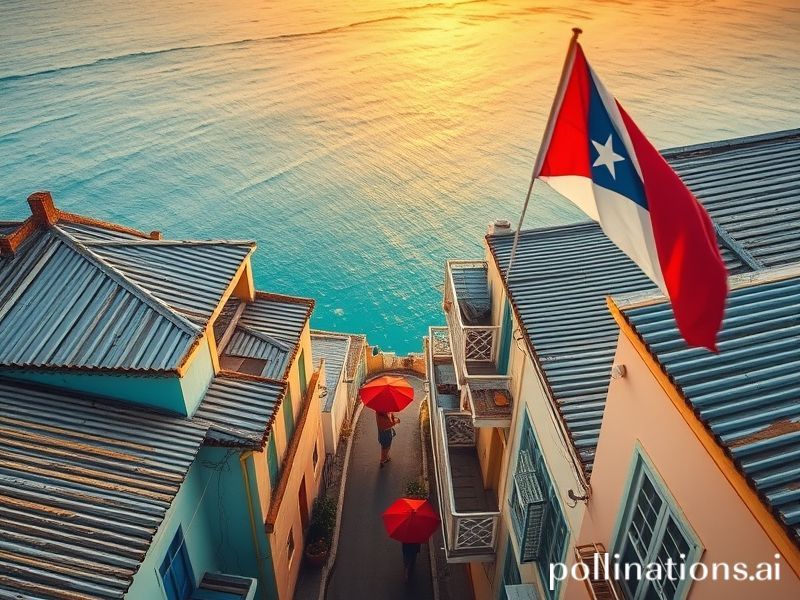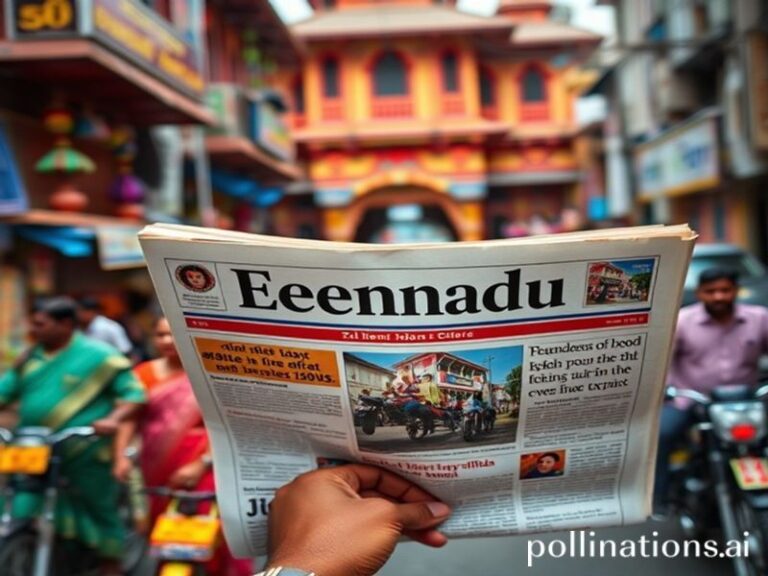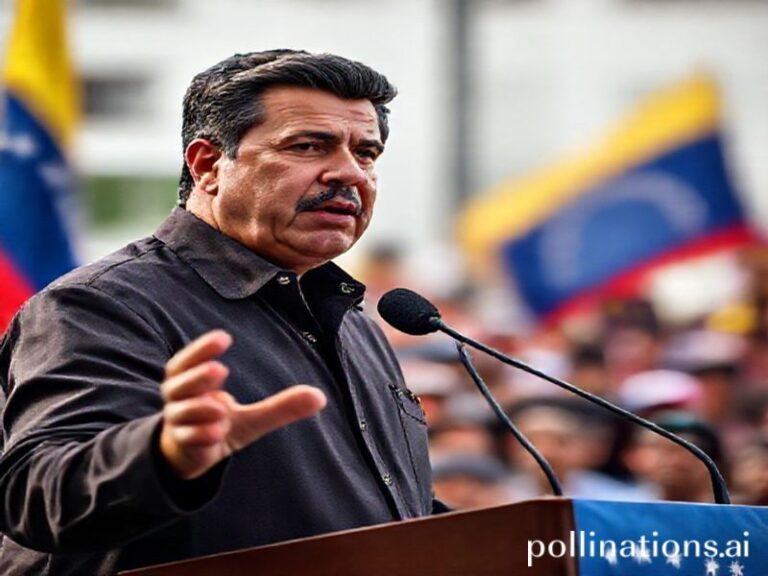Puerto Rico: The World’s Favorite Colonial Afterthought Teaching Everyone Else How to Survive the Future
Puerto Rico: A Tiny Island Teaching the World How to Be Precariously Important
By Dave’s Far-Flung Correspondent, nursing a Medalla on a balcony that still lists slightly after the last hurricane
From the air, Puerto Rico looks like a misplaced semicolon in the Caribbean sentence, a speck of land so close to Venezuela that it can smell the petrol, yet so stubbornly attached to the United States that it can’t vote for the president who decides its disaster budget. To the rest of the planet, this 9,104 km² afterthought is a masterclass in global paradox: an unincorporated territory that hosts pharmaceutical factories feeding half the world’s IV bags, while its own hospitals run on generators older than the interns.
Europeans, busy arguing over which Mediterranean island is the next tax haven, glance at Puerto Rico and shrug: “At least ours come with EU passports.” Meanwhile, China quietly buys up distressed beachfront, because nothing says Belt and Road like a strategic foothold next to Guantánamo’s bigger cousin. The irony is delicious: the island that Washington won’t fully claim is the same one Beijing is happy to lease one parking lot at a time.
Globally, Puerto Rico is the canary the coal mine keeps forgetting it caged. When Hurricane Maria knocked out power for 328 days—long enough for every toddler on the island to learn the word “apagón” before “mamá”—Germany took notes on grid vulnerability. Tokyo’s engineers studied the failure of concrete poles. Even smug Scandinavians, normally too busy ranking themselves happiest, paused to wonder what happens when your entire population lives on a wind-swept rock dependent on diesel ships. The answer: you become a case study in climate-security briefings alongside Bangladesh and Tuvalu, only with better rum.
Then there’s the money. Puerto Rico’s bonds—once sold to Norwegian pension funds as “high-yield, quasi-sovereign, what-could-go-wrong?”—collapsed into the largest U.S. municipal bankruptcy ever. Suddenly, retirees in Oslo discovered their winter heating bills were entangled with a San Juan toll road no one uses because the exit leads straight into a lagoon. The lesson? In the global casino, even the slot machines are tied to tropical rainfall data.
Pharmaceutical giants, fleeing FDA inspectors and mainland taxes, turned the island into the world’s medicine cabinet. When COVID hit and India choked on its own export ban, it was Puerto Rican factories that kept Europe’s morphine drips from running dry. The kicker: the workers earning $9 an hour couldn’t afford the very drugs they manufactured. It’s the sort of supply-chain poetry that makes a Swiss banker blush and a Marxist academic update his syllabus.
Politically, Puerto Rico is Schrödinger’s colony: simultaneously too American for the UN’s decolonization list and too foreign for a star on the flag. The recent non-binding plebiscite—essentially asking residents if they’d like to be upgraded from second-class to first-class citizens—was ignored by Congress with the same enthusiasm it reserves for D.C. statehood and gun statistics. Abroad, this looks like the world’s oldest democracy practicing selective amnesia, a trick authoritarian regimes admire for its cost efficiency.
Yet for all the cosmic joke, Puerto Rico keeps teaching. When crypto kings flocked to “Act 60” tax breaks, promising to turn San Juan into a blockchain Atlantis, locals simply raised rents and watched the digital cowboys discover that fiber-optic cables, like everything else here, dangle above floodwaters. The lesson to Davos Man: paradise is only tax-free until the power bill arrives.
So the world keeps circling back, like tourists who swear this time they’ll venture beyond Old San Juan’s pastel facades. Analysts scribble notes on resilience, investors hedge against the next Maria, and the rest of us order piña coladas with the polite amnesia of people who know the bill always lands somewhere else.
Puerto Rico endures, half warning, half wonder—an island that proves you don’t need sovereignty to be globally significant, just the misfortune of geography and the stubborn talent of surviving your own symbolism. The rest of us, scribbling in the margins of its storm reports, might consider sending more than thoughts, prayers, and discounted cruise packages. But that would require admitting we’re all passengers on the same listing ship, and the bar, alas, is cash only.







